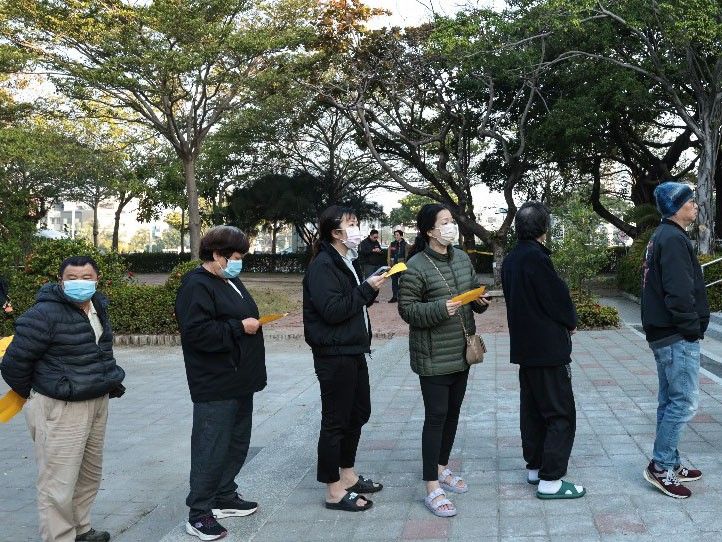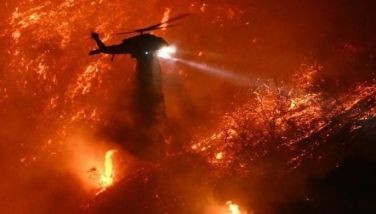Civil war to semiconductors: Taiwan facts as island votes

TAIPEI, Taiwan — Taiwan is voting for a new president and parliament on Saturday in an election that will be closely watched around the world.
The winner will lead the democracy of 23 million people as it manages bellicose threats from China, which claims the island as its own.
Here are some key facts about self-ruled Taiwan, which has its own currency, flag, military and government but is not recognised as an independent state by the United Nations or most countries.
China claim
The rift between China and Taiwan dates back to China's civil war, which erupted in 1927 between communist and nationalist forces.
Defeated by Mao Zedong's communists, the nationalist Kuomintang (KMT) of Chiang Kai-shek fled to Taiwan and claimed rulership of all of China -- just as the mainland claimed Taiwan.
Taiwan's official name remains the Republic of China, while the mainland is the People's Republic of China.
After decades of authoritarian government, Taiwan transformed into a vibrant democracy in the 1990s, and a distinct Taiwanese identity has emerged.
The current ruling Democratic People's Party, led by President Tsai Ing-wen, regards Taiwan as a de facto sovereign nation, not a part of China.
But Beijing insists the island will one day be absorbed by the mainland, and in a New Year's Eve speech, President Xi Jinping said China would "surely be reunified".
International limbo
The UN switched recognition from Taiwan to Beijing in 1971, with other countries and international groups soon following suit.
Washington switched to the People's Republic of China in 1979, and today fewer than 15 states, mostly small nations in Latin America and the Caribbean, grant Taiwan full diplomatic recognition.
Beijing has kept Taiwan out of international bodies such as the World Health Organization and leans heavily on governments to stop any moves towards recognition.
After Lithuania allowed Taipei to open a de facto embassy in Vilnius in 2021 using the name Taiwan, China slapped trade restrictions on the Baltic state, though they were partially lifted last year.
But Taiwan enjoys many of the trappings of a full diplomatic relationship with the United States in practice, and Washington is bound by an act of Congress to supply the island with weapons to defend itself.
China is sensitive to any move even suggesting official recognition of Taiwan, and a visit by then-US House Speaker Nancy Pelosi in August 2022 outraged Beijing.
In response, China launched its largest-ever military exercises around Taiwan, sending warships, missiles and fighter jets around the island.
Semiconductor superpower
Taiwan's ambiguous diplomatic status has not stopped it from becoming one of the world's leading tech manufacturing hubs, powering an economy that is one of the biggest in Asia -- albeit dwarfed by China's.
The island is home to industry giants such as Foxconn, the world's biggest contract electronics manufacturer, which assembles products for major brands including Apple and Huawei.
And the Taiwan Semiconductor Manufacturing Company controls more than half of the world's output of microchips -- the lifeblood of the global economy powering everything from smartphones and cars to missiles.
Asian pioneer
Taiwan has also been a regional leader in gender and LGBTQ equality.
In the last election in 2020, more than 40 percent of lawmakers voted in were women -- the highest proportion in Asia.
In 2019, the democracy became the first place in Asia to legalise gay marriage, holding its first same-sex weddings within days.
- Latest
- Trending
































